On my first day as an Obama administration deputy assistant secretary of state in November 2009, I sat down with my boss Jeff Feltman and his principal deputy Ron Schlicher for a meeting. “What are your priorities for your time here?” they asked me. I said that, among other things, I wanted to help the U.S. government prepare for an Egypt after then-President Hosni Mubarak.
In highlighting the need to prepare for a post-Mubarak Egypt, I wasn’t predicting the revolution that came a year or so later — I was just looking at the actuarial tables. Mubarak was 81 years old; he had ruled Egypt unchallenged since 1981 and had appointed no vice president to succeed him legally under the Egyptian constitution. And, since Egypt was America’s most important Arab partner, that was an obvious problem. Egypt after Mubarak was, from a U.S. policy planning perspective, a black hole.
Over the ensuing months, I worked with colleagues inside the Harry S. Truman Building to prepare a memo for Secretary of State Hillary Clinton on planning for a post-Mubarak Egypt, but we could never get the document through the building’s byzantine clearance process and onto her desk. Meanwhile, young activists in Egypt were increasingly restive, and Mubarak was increasingly intransigent as he prepared for his 2010 parliamentary elections.
Egypt after Mubarak was, from a U.S. policy planning perspective, a black hole.
In May 2010, despite American blandishments, Mubarak renewed the state of emergency that he’d ruled under ever since the assassination of his predecessor, Anwar Sadat. His ruling party rigged elections for the upper house of parliament while shutting down attempts by domestic civic groups to monitor the vote. In June, Egyptian security services dragged a young man, Khaled Said, out of an internet cafe in Alexandria and beat him to death on the street. His murder became a cause célèbre for young Egyptians, sparking a Facebook page called “We Are All Khaled Said” that turned into a locus for organizing what became the 2011 Egyptian uprising.
In November, 2010, Mubarak held elections for the lower house of parliament, again with levels of fraud and intimidation far higher than the previous years. The result removed any fig leaf of competition from Egypt’s semi-authoritarian system: The ruling party took 473 of 508 elected seats, while the opposition presence went from over 100 seats to 31. At a meeting the following month, when an Egyptian visitor described the humiliating spectacle of the sham elections and the rising anger among Egyptians in response, Secretary Clinton listened and then noted that Mubarak was creating exactly the situation he was most concerned about. The protests began about six weeks later, and 18 days after that, Mubarak had resigned.
Looking back from today’s brutally repressive Egyptian regime led by President Abdel Fatah el-Sisi, the ousted Mubarak’s 30-year reign seems gentler and sepia-tinged with unrealized possibility. In the 2000s, in response to domestic and international pressures, Mubarak experimented with limited political openings in media and civil society and limited competition from other political parties (although his regime also used dirty tricks, court cases, and other tools to constrain the outcomes). As I wrote in a 2005 profile, Mubarak had a window of opportunity after 25 years in power to try to set his system on a path to gradual political reform. Had he done so (and had his military backers allowed it), he might have gone down in history as Egypt’s greatest modern ruler.
But as that old profile notes, grand gestures were never Mubarak’s bag. As he grew older and dithered regarding his own intentions for leadership succession, his sons grew ambitious, his ruling party cronies grew rapacious, his security services grew arrogant, his generals grew anxious, and his citizens lost patience. Egyptians will be living with the consequences of Mubarak’s choices for many years after his death.
The Brookings Institution is committed to quality, independence, and impact.
We are supported by a diverse array of funders. In line with our values and policies, each Brookings publication represents the sole views of its author(s).

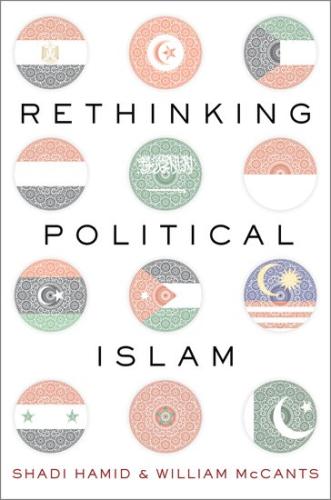
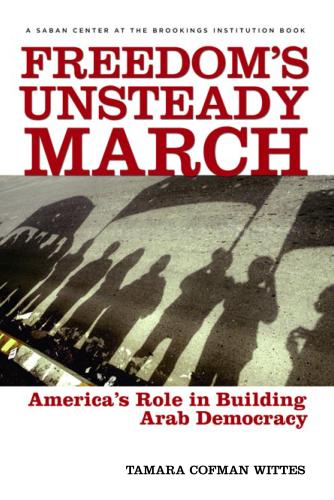
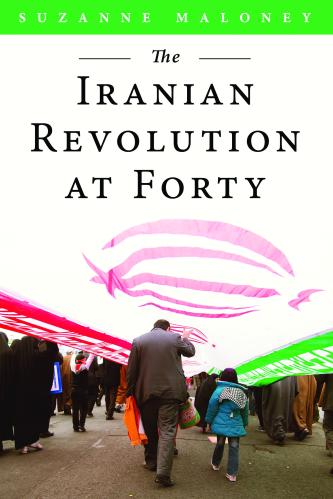
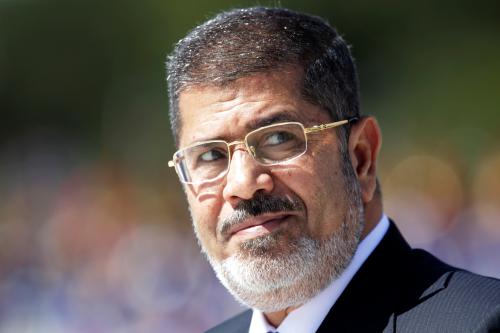
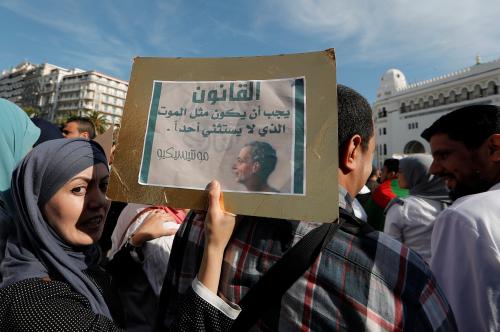


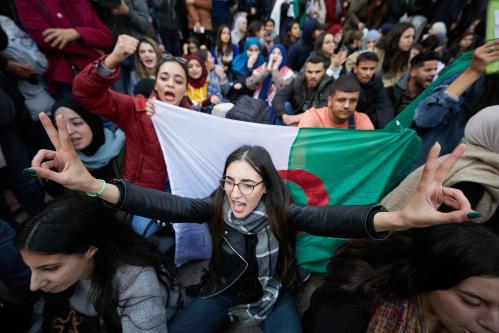
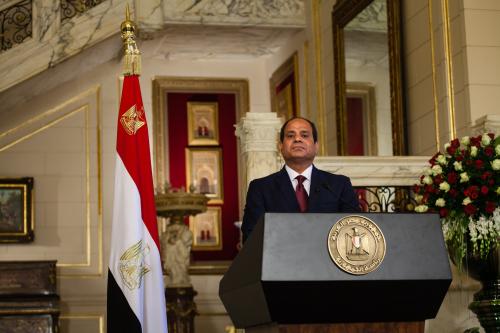
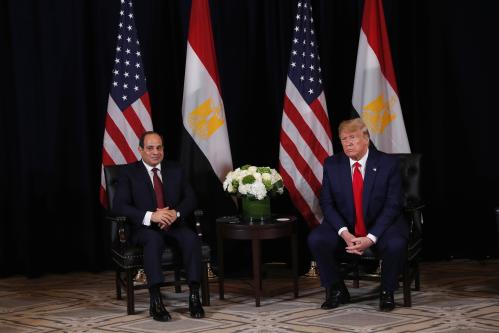
Commentary
Hosni Mubarak’s risk-averse reign brought Egypt to calamity
February 25, 2020